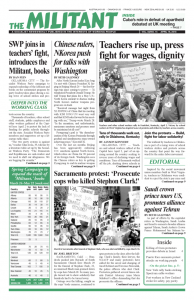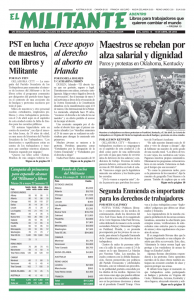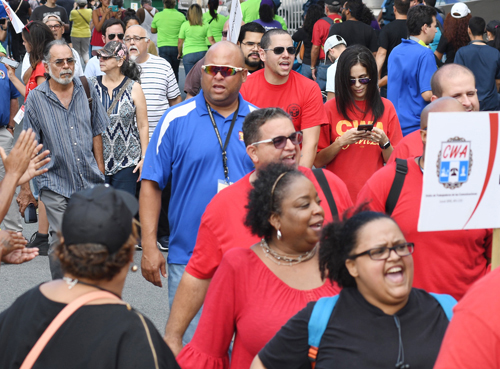Unionists protest in San Juan March 26 against anti-worker measures pushed by Puerto Rico Gov. Ricardo Rosselló.
His labor “reform” bill would over time cut sick and vacation days in half for private and public workers, lengthen probation for new hires to nine months, allow bosses to eliminate the annual Christmas bonus, eliminate severance pay for many fired workers, and cut the government workforce through attrition. Rosselló claimed this leaves a $5.5 billion surplus over five years, which could be put toward the government’s $74 billion debt to bondholders.
A one-day strike by the Federation of Puerto Rican Teachers shut down schools across the island March 19 to protest plans to close 305 schools, promote government-funded charter schools, and issue tuition vouchers to send some children to private schools.
The U.S.-government imposed Financial Oversight and Management Board — known in Puerto Rico as the Junta — said March 28 that the measures are “welcome” but not enough. It is demanding the government of the U.S. colony speed up and deepen all these moves and immediately impose a 10 percent cut to pensions.
Rosselló said that’s too much and an “illegal” act by the board. He then put his labor “reform” on hold. But it’s all an act, Iván Vargas, president of the water workers union in Mayaguëz, told the Militant by phone April 2. “Rosselló just wants to pass the hot potato to the Junta, that way they can be the ones responsible for all the cuts.”
Meanwhile, more than six months after Hurricane Maria ravaged the island, at least 200,000 people are still without electricity and in some areas water is rationed. Tens of thousands of homes still have only a blue tarp as a roof or none at all.


